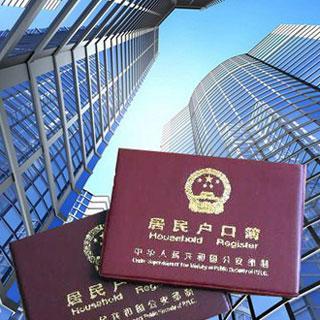
介绍:
China's cabinet has issued a circular urging reform in this country's household registration system, commonly known as the "hukou."
The document aims to help over half of the country's rural migrants to enjoy equal social services with their city peers within 6 years.
For more on this, the Beijing Hour's Cao Yuwei joins me in the studio.
C: Thank you Shane.
Shane: What can you tell us about the circular?
C: The document sets different approaches regarding the reform on the hukou system according to the size of cities.
It says the government will remove the limits on hukou registration in townships and small cities.
In medium-sized cities, the restriction will be relaxed, while in megacities, like Beijing or Shanghai, certain qualifications will be set for people who apply for an urban hukou there.
Shane: What is the meaning behind these moves?
C: Well to answer that question, we can first hear from the comment from vice public security minister Huang Ming this morning.
"The biggest target for the Household Registration System reform is to endeavor to help about 100 million farmers in cities and other regular residents get legal registration in urban areas, so that farmers who live and work in urban areas, and other regular residents who have not got household registration in the cities they live, are able to gradually enjoy the same public services as legal residents."
As the official notes, the reform mainly targets rural migrants.
We know that the hukou system is closely related to the social welfare system here in China.
Given that most of the rural migrants don't have an urban hukou, it is hard for them to enjoy equal services in areas like education, employment, and health with others who have the urban hukou.
However, in mega cities, not everyone can realize their big city dreams because of limited social resources, so local governments in those centres need to take a different approach to the hukou issue.
According to the document, people wishing to settle in megacities have to qualify through a "points system" based on their seniority in employment, their accommodation and social security.
And details about this point system will be drafted by each city under a general guideline from the central government.
Shane: As you mentioned, I think people choose to come to megacities despite all the pressure because there are more opportunities and better social services.
So besides tougher application requirements, what can the government do?
C: In this regard, the central government has been focusing on how to increase the attractiveness of medium and small sized cities.
According to official numbers, currently about 50 percent of rural migrants are living in smaller cities.
And with urbanization proceeding, the central government is trying to encourage more rural migrants to choose these medium and small-sized cities, instead of the big metropolises.
Of course to achieve that goal, the first step is to improve local industrial development and social infrastructure.
At a press conference this morning, Li Pumin, the Secretary General of the national development and reform commission, gave more details on that.
"Firstly the transportation in small and medium sized cities should be improved. This is the basis. Only when the traffic conditions are improved, the industries will develop and people will gather. Then the small and medium sized cities can be more attractive. The new type of urbanization requires that the railway will cover cities with more than 200-thousand people, and high speed railway should cover those with over 500-thousand. Highways should reach every town and city, and expressways will reach cities with more than 200-thousand people."
Shane: So I guess another question here is, after the migrants leave their homes in the rural areas, what happens to their farmland?
C: The document has specified that the urbanization process should not go against the will of farmers themselves, and their legal rights regarding to their farmlands should also be protected and preserved.
For more on that, we hear from Zhao Yang, he is an official from a central working group on rural issues.
"Farmers' own wishes should be fully respected when determining whether compensation should be given to those farmers who become urban citizens at the cost of renuncing their 'three rights'. The new type of urbanization is a long historic process, during which the new farmers-turned-urban residents have to learn to adapt to new circumstances. Meanwhile, the city governments also face a problem of delivering equitable public services to the new residents, which is a gradual process. The document supports retaining the 'three rights' of the new farmers-turned-urban-residents because only through this way can their interests be guaranteed and in turn can the urbanization process be smooth."
大家还在听

